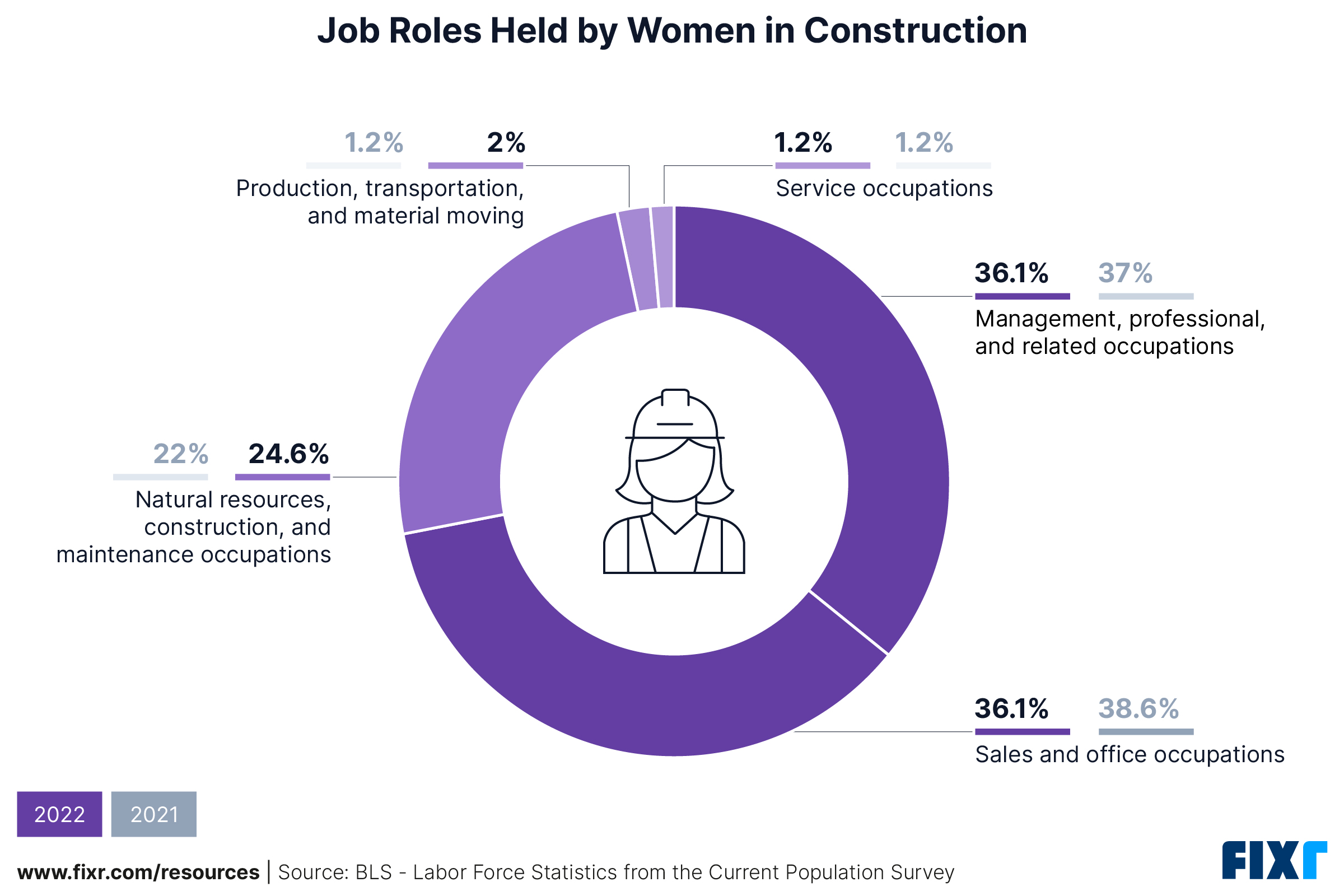The construction is slowly seeing some change. As we celebrate the annual Women in Construction Week (WiC), which takes place March 5-11, 2023, organized by the National Association of Women in Construction (NAWIC), let’s take a look at the advances being made by women of all ages and backgrounds in the industry. This year’s theme for WiC is “Many Paths, One Mission.”
More women than ever before work in construction
There are 1.28 million women workers in the construction industry, according to the U.S. Bureau of Labor Statistics (BLS), occupying a variety of job roles. Ten years ago, in 2013, there were only 840,000, which is an increase of 52.9 percent. This is part of an upward trend, where each year over at least the last decade we have seen more women joining the industry.
And while the gap between the number of men and women who work in construction is still large, one aspect that is promising is the small pay gap between genders. Across all industries, in the U.S., there is a national average pay gap of 17.1%, meaning women only earn 82.9% of what men do according to Fixr.com. However, in the construction industry, this gap is far less, with women earning roughly 95.5 percent of what men do.
Another positive notable step is the fact that the unemployment rate of women in construction is at its lowest in at least the last two decades. At its highest point after the Great Recession in 2010, there was an unemployment rate of 16, it has now reached a new low of 3.4 in 2022.

Job roles for women vary more
The majority of women still work in office-based roles in the construction industry. 36.1 percent work in sales and office occupations, whereas another 36.1 percent hold management, professional, and related occupations. One of the biggest advances we have seen is that there are now 43,000 more women working in natural resources, construction, and maintenance occupations. This is a jump of 15.7 percent from the previous year.
However, as to be expected, men far outnumber women in almost all occupational areas of the industry. While the number of women in more manual labor roles has gone up, they still only account for 4.1 percent of the total, with 95.9 percent of men dominating the sector.
In all areas of the construction industry men outnumber women by 78 percent or more. The only exception is that of sales and office roles, where the numbers are somewhat reversed. Women account for 72.2 percent of all workers in this area. While progression for equality is slowly being made, there is clearly a long way yet to go.
Progress is happening, but challenges continue
When you take a look at the number of women who make up the construction industry in each state, you get to see an outlook of the nation as a whole and realize that while some areas are well on their way to creating a more level playing field, some areas still lag behind.
According to the Washington Post, in Washington D.C. 17 percent of construction workers are women. When you consider the national average to be roughly 11 percent, you can see the great advances being made by associations in these areas, which are encouraging more women to join the workforce. Whereas, in Delaware, only 6.8 percent of the industry is women, highlighting the need to continue to break down barriers.
There are many associations that offer networking opportunities, mentorships, and support to women in construction. Organizations such as the NAWIC and Professional Women in Construction (PWC) seek to educate younger women about the opportunities available to them in the industry. And while men currently dominate the industry, as the statistics show, change is slowly happening.
References:
Why are way more women suddenly working in construction?






